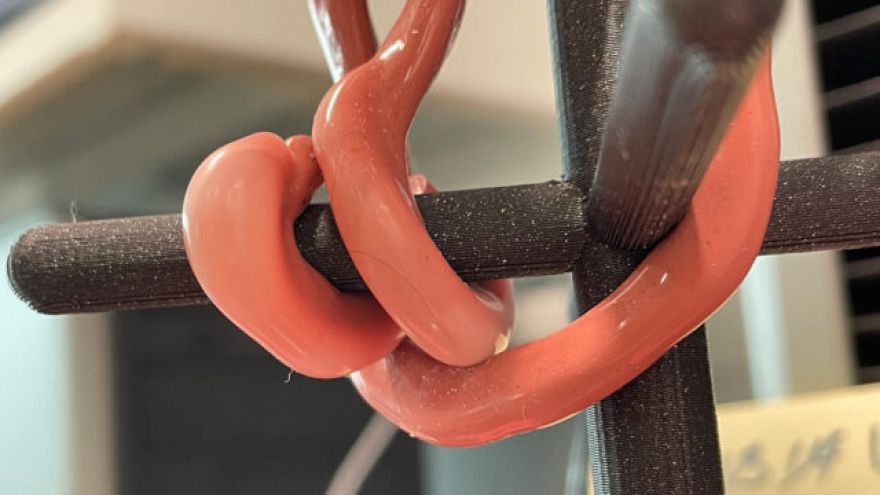
Harvard Scientists Invent Gripping Robot With Soft, Inflatable Tentacles
Robots have gotten shockingly advanced in the past few years — just take a peek at any recent video from if you doubt that. However, robots are still pretty bad at one vital task: picking up irregularly sized objects. The solution could be so-called “soft robotics,” which focus on the use of flexible, compliant materials rather than rigid metal and plastic. A new project in that realm from Harvard scientists consists of a tangle of tentacles. Thanks to its monstrous appearance, the tentacle gripper can hoist almost any small object without damaging it.
The robot was developed by researchers at Harvard’s John A.
Unlike most graspers, the tentacles don’t need any sensing, planning, or feedback control. They’re pneumatically actuated — in the off state, they hang freely, allowing an operator to drape them over the target. When activated, the spindly rubber tubes contract. As you can see in the video, the tentacles wrap around the target securely as they move.
“Entanglement enables each highly compliant filament to conform locally with a target object leading to a secure but gentle topological grasp that is relatively independent of the details of the nature of the contact,” L. Mahadevan, a professor of applied mathematics at SEAS. That’s a fancy way of saying the tentacles can pick up almost anything. The team tested the grasper on various objects, like the house plant seen above. It can also pick up soft fruits and vegetables without crushing them.
The SEAS team sees many potential applications for the tentacle robot, like agriculture, marine biology, and warehouse management. The research, funded by the National Science Foundation, has been published in the Proceedings of the National Academy of Sciences.
Now read: